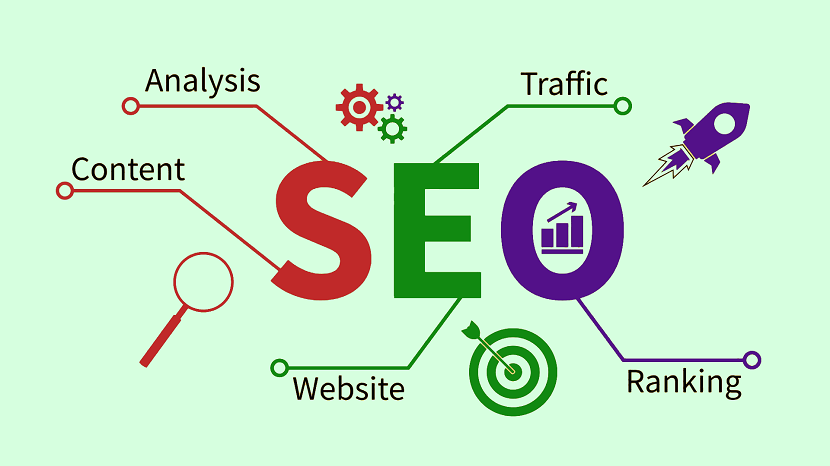- In the present digital world, the future of SEO has become one of the most discussed topics. With the coming of AI, a lot of things have changed, like the way we search, create, and consume content available online. Businesses mainly depend on SEO professional services, and follow a structured content marketing guide in order to stay visible in this highly changing landscape. Search engines have started to incorporate AI-powered systems, and the focus of users is shifting towards more conversational searches. This raises the need to understand what is next in terms of online searching in the present time, when AI use has increased. In this blog, we will discuss the evolution of SEO, the role played by AI in content creation, and how AI has transformed search engines.
The evolution of SEO
- In order to predict the future of SEO, it is best to understand the evolution of SEO. SEO was first started in the 1990s, when search engines such as Yahoo, Excite, and AltaVista mainly ranked web pages on the basis of their keyword matching and meta tags. Early SEO practices mainly consisted of keyword stuffing as well as directory listings, which led to spammy and poor-quality results. But with the introduction of Google in 1998, the PageRank algorithm of Google brought a significant transformation in the SEO world. This led to SEO considering quality backlinks and using engagement in order to measure the authority of a web page, which set a new standard for high-quality and relevance.
- In the present scenario, SEO has embraced AI and machine learning in order to optimize content. Core Web Vitals, which were introduced in 2020, put special emphasis on experience and loading speed of a webpage.
How AI has transformed search engines
- AI has created a major transformation in the world of search engines by allowing them to understand and provide more relevant, contextually accurate, and customized search results beyond traditional keyword matching.
- Modern search engines use machine learning to predict and rank the relevance of content using major datasets and past user behavior. Furthermore, Google’s “learning to rank” system compares multiple pages and predicts the best results for a search query in real-time to improve regularly.
- AI has also enabled multimodal search by using images and voice, such as Google Lens, and voice search, which has now deepened how users communicate with search engines. Conversational AI also makes search more interactive and delivers dynamic, everyday language answers instead of links.
- Search engines are also transforming into answer engines that offer direct responses, rich snippets, as well as recommendations, optimizing AI to aggregate and create high-value knowledge rapidly.
What are the shifts in SEO strategies?
- AI-powered content optimization tools evaluate users’ intent behind search queries in order to generate high-quality content.
- Rise in importance of structured data, and segmentation of content for rich search results, such as snippets and knowledge panels.
- Put more emphasis on preventing AI-produced spam through quality and originality in content.
- There has also been a surge in the growth of multimodal SEO, which also includes voice and image searches.
- Optimization for zero-click searches where answers are provided directly on SERPs.
- SEO strategies mainly focus on answering a broad range of related queries to fit AI search features such as Google’s Search Generative Experience (SGE).
Role of AI in optimization and content creation
- AI has played a transformational role in both SEO optimization and content creation by improving, automating, and scaling main procedures for more effective, data-driven strategies in 2025, and it will only scale effectively to improve the future of SEO.
Advanced keyword research
- AI tools evaluate massive datasets with natural language processing in order to recognize high-value keywords that are effectively aligned with user intent and latest search trends, which allows for more precise targeting.
Performance tracking and reporting
- AI engines regularly monitor SEO KPIs, track the algorithm changes, and offer actionable insights that you can include in your content.
On-page optimization
- AI also offers real-time, data-driven recommendations that optimize meta tags, keyword placement, headings, as well as internal linking in order to enhance search rankings.
Content optimization
- AI-Powered editors easily evaluate the readability of your content, and they also see keyword usage and semantic relevance. Furthermore, they offer real-time improvements to improve quality along with ranking potential.
Technical SEO automation
- Platforms such as Alli AI automate site audits, fix any technical issues in your website, like site speed, schema markup, or mobile usability, and they also help to scale optimizations across multiple pages very quickly.
Opportunities and challenges
Opportunities
- Better content relevance- AI provides better analysis of users’ intent behind their searches, and semantic search allows brands to create high-quality, relevant content that performs well in search rankings.
- Answer engine optimization- Optimization for voice search, local queries, as well as AI-powered direct answers, helps to improve visibility on alternative search platforms such as virtual assistants.
- Automation and efficiency- AI tools also automate keyword searching, technical audits, prepare reports, and optimize your website’s content, which further saves time and resources while scaling your SEO efforts.
- Customization- AI tools help to provide personalized search results. These tools also optimize user experiences by understanding what users need, which leads to better engagement and a rise in conversion rates.
Challenges
- Overdependency- One of the biggest challenges of AI is that it has led to excessive dependence, and without human creativity, brands’ efforts are being undermined, resulting in a reduction in value.
- Content authenticity- It has become very difficult to distinguish between AI-generated and human-produced content. This has posed significant risks to the quality and originality of content, which search engines value the most.
- Technical difficulties- Incorporating AI-centric SEO tactics, such as schema markup, structured data, along with technical optimization, has become more challenging for small businesses or teams that do not have any specialized skills.
- Algorithm adaptation- Search algorithms have changed drastically under the influence of AI. These algorithms now require continuous monitoring, as well as strategic realignment in order to avoid penalties and loss of online visibility.
Conclusion
- The future of SEO is all about its transformation into a more dynamic and hum-centric process. SEO and AI will go hand-in-hand in the future. Search has become more evolved and has become an interactive experience between a human and a language model. Brands that incorporated IA-powered research will definitely obtain a competitive edge, while those who resist AI will be left behind. Pentra SEO Services helps brands to navigate through these challenges by offering a combination of data-driven strategies, human creativity, and technical expertise.
- Contact us, and our team will get back to you in 24 hours.







